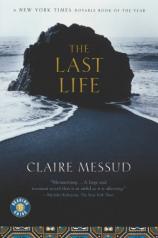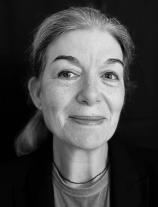The Last Life
Review
The Last Life
When we begin sampling the dense prose of Claire Messud's THE LAST LIFE, we find her narrator, Sagesse LaBasse, the daughter of a French-Algerian father and an American mother, in exile in New York City. It is 1991, and Sagesse is looking back at events that took place in 1989 --- her 14th year --- in the south of France. It is here that her grandfather, Jacques --- the dictatorial owner of the Hotel Bellevue --- in an act of arrogant carelessness, fires the shot that unravels his family and destroys the delicately negotiated balance of everyone's relationship to everyone else. In truth, by this time the LaBasse family is so fractured that, had Jacques not fired his gun, something else at some other time would have smashed them to pieces eventually.
Jacques, an Algerian refugee, rules his hotel staff and family members with tyrannical authority, imposing his own ideas of morality and behavior over everyone else. His wife, Monique, romanticizes her husband and their courtship, telling her granddaughter how romantic it all was, only to have Sagesse's mother, Carol, relate an entirely different version of these events. Sagesse's father, Alexandre, lives in Jacques's shadow and is himself a hotel employee, having been forced to accept his family's largess years before, when Sagesse's brother, Etienne, was born brain-damaged and physically impaired. To Carol, Alexandre is his father's slave. But she, too, is enslaved by her husband's family, always trying to look and act French in order that she might become more acceptable to them. Despite her efforts, however, Carol remains the perfect example of the American "twinset and pearls" woman, burdened with the knowledge of her unhappy husband's extramarital affairs.
Jacques's tyranny and bitterness spill over one night when, irritated by the sound of Sagesse's friends splashing in the hotel pool, he fires a gun into the blackness, wounding one of her friends. His impetuous act lands him in jail for six months and serves as the crack that rapidly splinters the lives of his family into pieces, which Sagesse must reassemble in order to come to terms with her family's history and the secrets it contains. Messud's prose is thick, heavy with the weight of Sagesse's thoughts, yet it is visual rather than ponderous, with all the characters clearly delineated. Sagesse's sentence structure and ways of expressing herself suggest a young girl for whom English is nearly mastered, the "foreignness" and careful formality of her words lending authenticity to her voice. When her grandfather commits the act that will change forever the lives of the people closest to him, Sagesse is already beginning the teenager's struggle for answers, while affecting that casual indifference that most adolescents think will protect them from appearing to care about anything other than themselves.
On top of the usual pubescent preoccupations of budding sexuality, belonging, and uncertain identity, Sagesse must now differentiate truth from fiction within her own family's history. Her grandfather's violent act isolates her family from the larger community and cuts Sagesse off from her old friends, yet she processes the events around her with a sophisticated seriousness far beyond her years, reaching for the truth in order to come to terms with the past and forge a new identity for herself. "I was washed," says Sagesse, "alternately, by these extreme opinions.... It was a matter of choosing a side and of taking it." As one penetrates deeper into THE LAST LIFE, there is an increasing atmosphere of walking on eggshells, but Sagesse's unflagging courage and admirable self-awareness convince the reader that she will somehow survive the wreckage of her family and live her own truth, in her own way.
Reviewed by Laura Carter on September 28, 2000
The Last Life
- Publication Date: September 28, 2000
- Genres: Fiction
- Paperback: 400 pages
- Publisher: Mariner Books
- ISBN-10: 0156011654
- ISBN-13: 9780156011655





